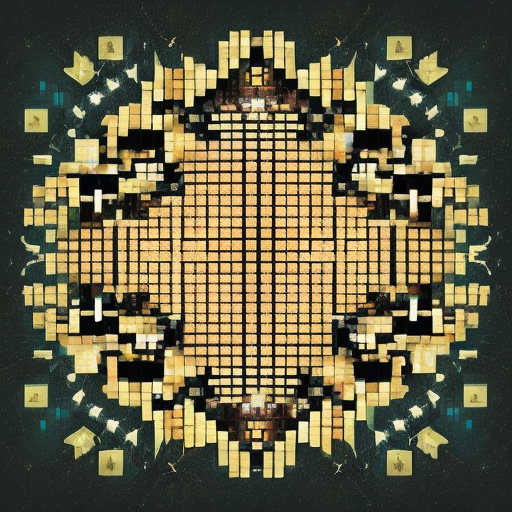Digital Remix: Exploring the Intersection of Art and Technology
Digital remix is a creative practice that involves taking existing digital content and reworking it to create something new and unique. It is a form of artistic expression that has gained popularity in recent years, thanks to advancements in technology and the widespread availability of digital tools.
The Concept of Remix
Remix culture has its roots in the music industry, where DJs and producers have been remixing songs for decades. However, with the rise of digital technology, the concept of remix has expanded beyond music to encompass various forms of art, including visual art, literature, and film.
At its core, remix is about taking existing content and transforming it into something different. It involves recontextualizing, reinterpreting, and repurposing existing material to create something new and original. In the digital realm, this process is made easier by the availability of software and tools that allow artists to manipulate and combine digital elements with ease.
Digital Tools and Techniques
Digital remix artists utilize a wide range of tools and techniques to create their work. These tools include image editing software, video editing software, sound editing software, and more. With these tools, artists can manipulate and combine digital elements such as images, videos, and sounds to create visually stunning and thought-provoking pieces.
One popular technique used in digital remix is collage. Artists can take various digital images and combine them to create a new composition. This technique allows for the juxtaposition of different elements and ideas, creating a visually striking and conceptually rich artwork.
Another technique commonly used in digital remix is sampling. Similar to how musicians sample and rework existing songs, digital artists can sample and remix existing digital content. They can take snippets of images, videos, or sounds and incorporate them into their work, creating a new and unique piece that references the original source material.
The Impact of Digital Remix
Digital remix has had a profound impact on the art world. It has democratized the creative process, allowing anyone with access to digital tools to become an artist. This has led to a proliferation of digital art and a blurring of the lines between traditional art forms and digital media.
Digital remix has also challenged traditional notions of authorship and ownership. With the ease of copying and manipulating digital content, questions of copyright and intellectual property have become more complex. Artists are now able to build upon and remix existing work, creating a dialogue between the past and the present.
Furthermore, digital remix has opened up new possibilities for collaboration and community-building. Artists can easily share their work online and collaborate with others from around the world. This has led to the emergence of online communities and platforms dedicated to digital remix, where artists can showcase their work, collaborate with others, and receive feedback and support.
The Future of Digital Remix
As technology continues to advance, the possibilities for digital remix are only expanding. Virtual reality, augmented reality, and artificial intelligence are all areas that hold great potential for the future of digital remix. Artists can use these technologies to create immersive and interactive experiences that push the boundaries of traditional art forms.
In conclusion, digital remix is a dynamic and evolving form of artistic expression that explores the intersection of art and technology. It involves taking existing digital content and reworking it to create something new and unique. With the availability of digital tools and techniques, artists can manipulate and combine digital elements to create visually stunning and conceptually rich artworks. Digital remix has had a profound impact on the art world, democratizing the creative process and challenging traditional notions of authorship and ownership. As technology continues to advance, the future of digital remix holds exciting possibilities for artists to push the boundaries of traditional art forms.












